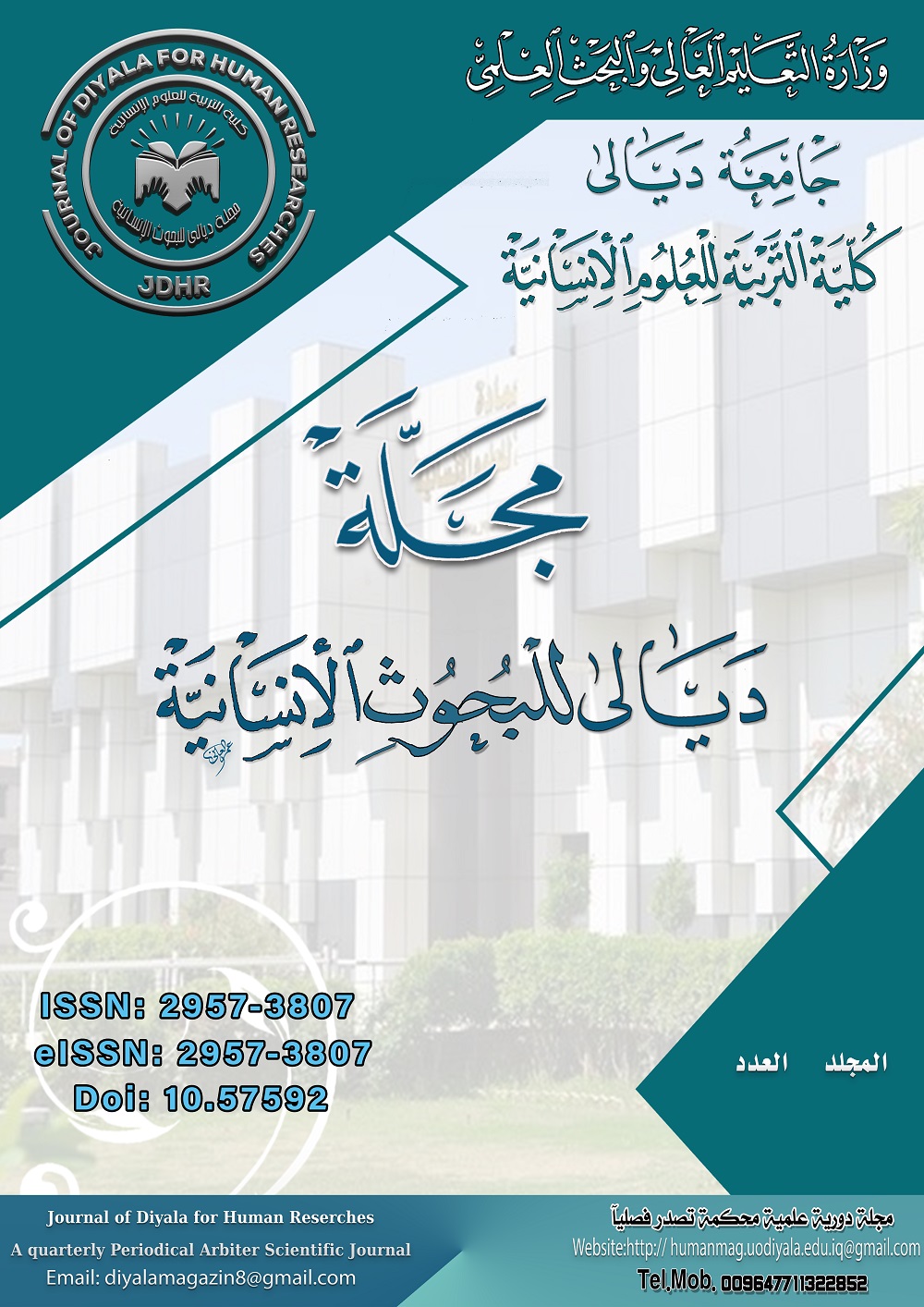Water Scarcity Effects on Iraqi Farmers in Social Media Reports: A Critical Discourse Analysis
DOI:
https://doi.org/10.57592/e37x1f32Keywords:
critical discourse analysis, Fairclough’s three-dimensional modal, news reports, social media, water scarcityAbstract
Downloads
Published
2025-10-02
Issue
Section
بحـــــــوث العــــــدد
License
Copyright (c) 2025 CC BY 4.0 (http://creativecommons.org/licenses/by/4.0/)

This work is licensed under a Creative Commons Attribution-NonCommercial 4.0 International License.

